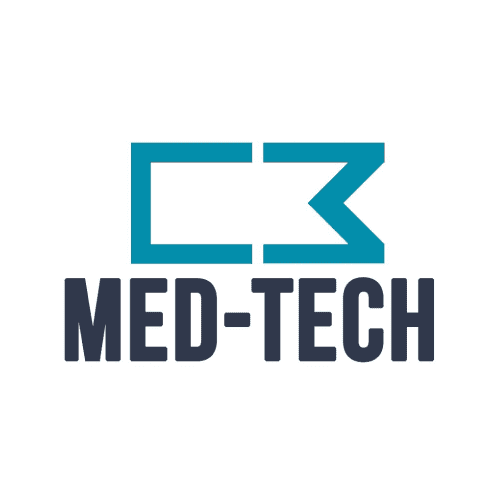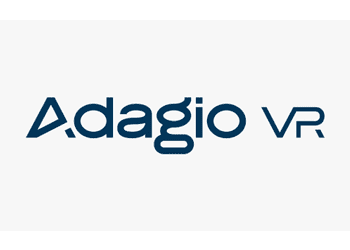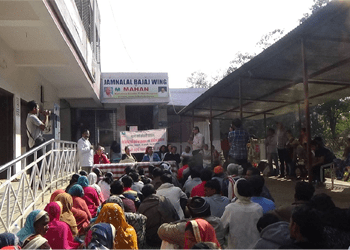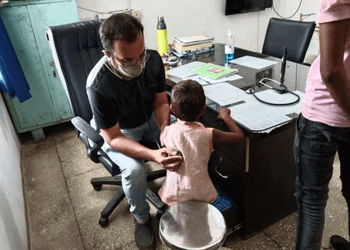Recognised by the UN as the world’s 50th Digital Public Good, the Open Health Care Network (erstwhile Coronasafe) has been supported by ACT For Health since the early days of the Coronavirus pandemic.
At the time, the solution enabled the National Health Mission to manage 355K patients through 130K ambulance shifts and 200K tele-medicine calls between March 2020 to May 2022.
Last year, ACT expanded its support to help OHCN develop tele-ICU capabilities – a solution that’s being institutionalized in 7 states to cover 200 district hospitals. Today, our focus is expanding to enable their journey from tele-ICUs to Smart ICUs as a way to enhance its ability as a Digital Public Good that’s integrated with national healthcare programs.
What are Tele-ICUs and why are they important?
When the nation ran out of oxygen during the Delta wave, it was also realised that around 300 rural and remote districts out of 766 overall districts in India don’t have ICU beds with oxygen capabilities.
The 10BedICU project was born to fill this need with a goal to set up 3000 ICU beds in 300 district hospitals, and the original CARE platform was adopted as the solution to build the necessary tooling.
In rural and remote hospitals, there are barely any healthcare professionals who understand how to use critical care equipment and so, along with the supply of physical medical equipment, ACT For Health supported the development of tele-ICU capabilities which could ensure that medical professionals in rural areas could remotely leverage the expertise of critical care specialists anywhere in the country.
How did OHCN develop this tele-ICU capability?
36 engineering students, who were selected and trained in a full-stack industry curriculum, worked under 2 senior software engineers at eGovernance Foundation to build the tele-ICU Capabilities. These students worked with Srikanth Nadhamuni, the founding CTO of Aadhaar, as well as intensive care doctors from Kerala to scope out the design requirements and engineer the feature set – which was piloted at KR Hospital in Mysore.
Today, the solution is deployed to manage 410 ICU beds in 41 district hospitals and has supported 4498 patients as of May 2023.
The road and the vision ahead
The most significant difficulty in creating Digital Public Goods has been the availability of software engineers. The full-stack developer curriculums supported by ACT are now approved as the National Model Curriculum. 18 institutions from 13 universities across 6 states have now adopted the curriculum that is creating a direct path for the industry to get highly skilled talent. The top students from this talent pipeline are being inducted to build and upgrade Digital Public Goods, post which they graduate into the industry.
Thus, by creating a scaling pipeline of high-quality engineering talent, the capability to build and upgrade digital public goods is being directly institutionalized into the nation’s higher education system.
The OHCN software has also completed 2 of the 4 milestones in integration with the ambitious Ayushman Bharat Digital Mission (ABDM) program. Once completed, partner hospitals will have the ability to create unique health IDs for patients, deliver care and get reimbursed under the PradhanMantri Jan Aroya Yojna public insurance scheme; thus streamlining the access and delivery of care for citizens depending on public health infrastructure.
The learnings from tele-ICU deployment indicate that regular ICU beds can also be converted into Smart ICUs i.e. empowered with a digital monitor for remote care. A smart ICU solution is a versatile system that can be seamlessly implemented in any hospital, offering a range of benefits. One of its key advantages is the ability to configure hardware, independent of manufacturer specifications.
This means that even low-resourced hospitals can integrate the Smart ICU solution with their existing equipment, regardless of the brand or model. Such hardware agnosticism ensures compatibility and flexibility and enables healthcare providers to optimize their ICU operations without the need for extensive equipment replacements. By leveraging this technology, hospitals can enhance patient care, streamline workflows, and harness the power of intelligent data analytics to improve overall efficiency within their intensive care units.
During our analysis, we conducted a comprehensive comparison of the development cost for the Smart ICU solution from various commercial sources. Remarkably, we discovered that the OHCN model offers a significantly more competitive option. Not only does it provide an affordable solution for hospitals, but it also addresses the education aspect by incorporating an industry-ready curriculum for training senior engineering students.
This dual advantage ensures that hospitals can adopt the Smart ICU technology without straining their budgets, while simultaneously contributing to the education sector by equipping future tech talent who are familiar with health-tech, ABDM etc. with the necessary skills and knowledge to excel in the field.
By merging cost-effectiveness with educational impact, the Smart ICU solution becomes a compelling choice for continuing our support to the Open Health Care Network and we can’t wait to be a part of their journey ahead, as it unfolds its numerous possibilities.










